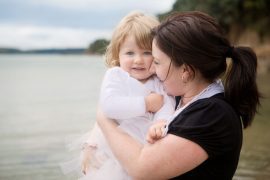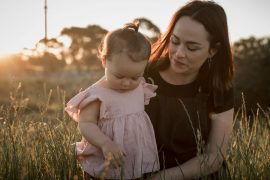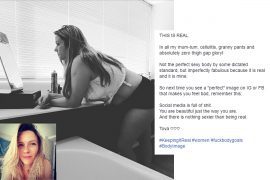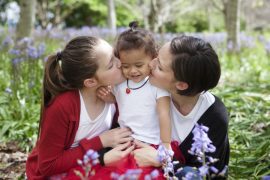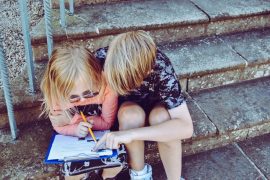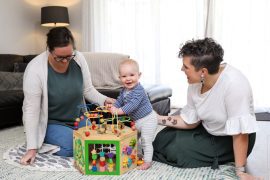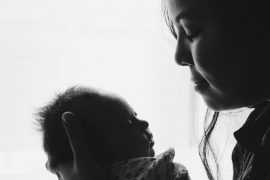By Jeremy Majid
One hour’s drive south of Adelaide lies a forest, where we drove to meet our friends for a picnic. Our friends lived an hour in the other direction, having recently moved to the country to indulge their passion for wildlife. It wasn’t long before they welcomed into their home an orphaned baby kangaroo, to whom they gave all the necessary attention and care (including four-hourly feeds through the night!).
And so, we met our friends for a picnic in the forest. We brought our two year old human and they brought their joey. The joey was content sleeping in his cloth pouch most of the time, surfacing for the occasional bottle-feed. Eventually he decided to explore the area, foraying a few metres away from our picnic table. This was until he became spooked by some kids running past and scampered back to the safety of his… mother; his human, non-marsupial, mother. This moment felt unusual, but at the same time, familiar. If a kangaroo can form such a strong bond with a human, imagine the strength of the bond between an infant human and its parents.
This moment felt unusual, but at the same time, familiar. If a kangaroo can form such a strong bond with a human, imagine the strength of the bond between an infant human and its parents.
The need for psychological safety is not a modern discovery. Before the innovation of respectable research ethics, psychologist, Harry Harlow, separated baby rhesus macaque monkeys from their biological mothers. Their mothers were substituted for two sets of wire-framed “mothers”, one with milk bottles in their torsos, and the other with no milk but covered in soft terry towelling. While the babies drank their fill of milk, they spent most of the time cuddled up to the soft cloth. The emotional deprivation from the experiment left psychological scars that were evident even in subsequent generations (see: Seay, Hansen & Harlow, 1962 and Seay & Harlow 1965).


